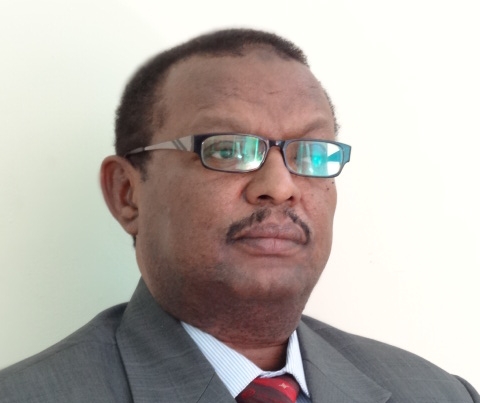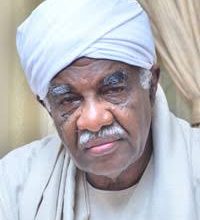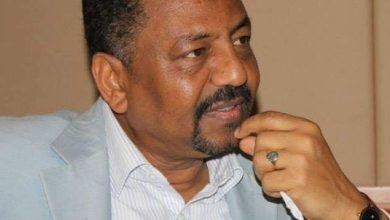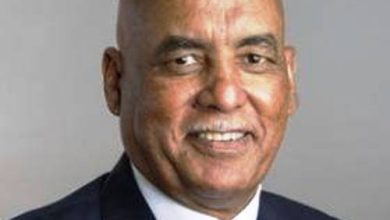Exploration in Year-Long War Books (1): Paris Events, A Recipe for Ending War, or for Managing Crisis?

By: Khaled Al-Tijani Al-Nour
1
In this series of articles about the war and its repercussions against the backdrop of the controversy raised by the activities of the Paris conference on Sudan in mid-April, we are trying to explore the backgrounds, contexts, and reasons for these three events, their agenda, and their conclusions.
To what extent were its outputs able to answer a fundamental question, whether its approach approached the issue of war in Sudan with insight from different angles, exploring new horizons for alternative solutions that contradict the narratives circulating since before the outbreak of the war, in a way that truly contributes to turning the page on it and putting an end to it.
Or was its outcome merely a regurgitation of those old narratives, casting more doubts about the seriousness of the international will to end the war, making it seem more preoccupied with managing the crisis than concerned with effective solutions to it?
2
There is no doubt that the factors of the zero-sum internal political conflict make the Sudanese parties bear the greatest burden with different relative weights of responsibility for sliding into resorting to the gun, but it is also true that the factors of external interference were strongly present at the heart of this conflict, which makes the international community’s contribution no less influential as things turned out to produce a war, instead of the rational transformation that was hoped for, as a precedent in a transitional context following an uprising.
Whatever the case, remembering that one year has passed since this war, with all its tragic consequences and sacrifices, any measures will be of no use if its message is not present to all parties, internally and externally, and open to a critical mind regarding its short-sighted narratives and motives that produced this serious existential threat to the Sudanese State.
3
Is there anything useful, while we are in the position of analyzing the impact of the Paris activities, if the international community has learned something from the harsh lessons that citizens are paying for that go beyond expressing emotional feelings for the victims of war and donating some money, to the availability of a serious will that offers realistic solutions that contribute to treating the roots of the causes? The conflict is to prevent more tragedies from occurring, or are they satisfied with circumstantial remedies that alleviate some of its symptoms? The question remains: Did the Paris Conference come up with a recipe that truly ends the war justly, or are they merely incidental measures to manage its crisis in a way that leads to its sustainability?
4
Then, did this international interest, which remained silent for an entire year, suddenly turn to the humanitarian crisis in Sudan, driven by concern for its own affairs and for its own sake, or was it taken as an occasion to address the more urgent concerns of the herders against the backdrop of geostrategic developments and very significant political transformations in the context of its vital national security that have become a a present threat not only to the hegemony of Eurocentrism in the midst of a severe test of the credibility of its moral standards, but also to its strategic interests economically, politically, and security.
This series of articles seeks answers to these and other questions with evidence-based analyses.
5
Among the three events hosted by Paris last week regarding Sudan and the repercussions of the war on its regional neighbourhood, which are the political ministerial meeting, the humanitarian conference, and the Sudanese dialogue, the first event stands out with the meeting of “Ministers of Foreign Affairs and representatives of countries and international and regional organizations” under the title “Supporting peace initiatives for… “Sudan” is most important in terms of its usefulness in terms of the possibility of moving beyond dealing with the consequences of the war, to the actual ability to achieve the goal of stopping the war and spreading peace.
The fundamental question is to what extent the “Declaration of Principles” issued by this meeting constitutes a realistic, logical and effective basis that contributes “to settling the conflict in Sudan in a peaceful manner, while taking care of the aspirations of the Sudanese people and the sovereignty, unity and territorial integrity of Sudan” as stated in its preamble?
6
Before entering into an analysis of the agenda and content of the “Declaration of Principles”, and then the “Humanitarian Conference” and the “Sudanese Dialogue” respectively, it is advisable to read the context in which these events took place. On February 7, the United Nations and its partners issued an appeal to “provide $4.1 billion to meet the most urgent humanitarian needs of civilians inside Sudan and those who have fled to neighboring countries.”
On February 15, French Foreign Minister Stephane Ségournet announced during a hearing in the National Assembly: “We will host in Paris on April 15 a humanitarian conference for Sudan and neighboring countries to help resolve this tragic humanitarian crisis,” adding, “This must not become a forgotten crisis.”
7
Thus began an exclusive French initiative in response to the United Nations humanitarian appeal to urge donors to finance two plans to respond to the needs of the displaced within Sudan and refugees to neighboring countries. But why did the initiative initially come from France specifically, before the European Union and Germany joined it later?
French motives can be read in two contexts: the context of seeing itself as an essential component of “Eurocentrism” and its broader framework, “Western centralism,” and the other context within the framework of its strategic interests against the backdrop of the accelerating decline of its influence and role in light of the anti-Paris geopolitical transformations in the African Sahel belt, especially after the elections. The latter Senegalese group added a new popular, democratic dimension to the anti-French rhetoric that goes beyond being an expressive speech about the coup plotters in the region.
8
Perhaps the key word that confirms the impact of the “Eurocentric” factor in the French initiative on the “moral burden” is what was included in Minister Sigourney’s speech when he expressed the fear that the issue of war in Sudan would become a “forgotten crisis,” which necessarily indicates that the deliberations on… By launching the French invitation, it concluded that it had in fact already been forgotten to the point that this neglect, whether due to miscalculation or prior planning, caused great embarrassment and tested the credibility of the political and humanitarian positions whose slogans Western countries raise.
This becomes clear when compared against the backdrop of its relentless haste to come to the aid of Ukraine politically, militarily, economically and humanitarianly, on the one hand, and its failure, on the other hand, to come to the aid of the afflicted Palestinians in Gaza, either out of inability or identification with the oppressive Israeli policy towards the people of Gaza, which exceeded all international humanitarian norms and laws in protecting civilians.
9
France is most in need of showing a new humanitarian face in its foreign policy to remedy its damaged reputation in its former African colonies that are rebellious against its heritage. This is not an analysis, but rather what President Emmanuel Macron stated, clearly affirming twice in his speech at the end of the session of the Humanitarian Conference last Monday, that attention is paid to the matter of war and its consequences. Humanitarianism in Sudan comes to accuse the West of double standards, and to confirm that the Sudan issue is neither forgotten nor absent from the French agenda, and that it receives the same attention it gives to the situation in Ukraine or Gaza.
Another reason for France’s precedence comes with the aim of investing politically in the close relations it had with Sudan during the era of the transitional government headed by Hamdok, against the backdrop of the important roles that Paris played in the economic files, and in adopting the aspirations of young people for change, which President Macron stressed when he met with the participants in a “Civil society”.symposium.
10
Whatever the case, the repeated statements by international officials over the past few weeks confirm that the tragedy of war and its consequences being forgotten and ignored internationally is not a new matter, including what was stated in the statement of the United Nations Under-Secretary-General for Humanitarian Affairs and Emergency Relief Coordinator, Martin Griffiths, when… Launching the Humanitarian Response Appeal last February 7, he said, “The last ten months of conflict have robbed the Sudanese people of almost everything: their safety, their homes, and their livelihoods,” and complained that the $2.6 billion 2023 appeal “received less than half of Funding level, and this year, we must do better and with an increased sense of urgency.”
11
German Foreign Minister Annalena Baerbock said in her speech during the Paris conference, “The international community must not avert its attention from the war in Sudan, which has caused a catastrophic humanitarian crisis,” speaking of the “unspeakable suffering” of the Sudanese and their feeling that the world has abandoned them.
Further evidence of the overwhelming feeling among the sponsors of the Paris Conference of the reality of international neglect of Sudan is the title of the joint article “It is time to stop the man-made disaster in Sudan” by Josep Borrell Fontelés, High Representative of the European Union for Foreign Affairs and Security Policy and Vice-President of the European Commission, and Janez Lenarčić. , the European Commissioner for Crisis Management, published a week before the conference, in which they stated that “the world’s worst, most complex and cruel crisis is unfolding in Sudan without appearing on prime-time news bulletins,” and that the Paris conference “must serve as a wake-up call for Africa, Europe and the entire international community.”
12
Of course, policymakers and decision-makers in international decision-making capitals are not expected to wait for news bulletins to learn about the horrors that war brings, whether in Sudan or anywhere else in the world. Therefore, the justification of European and international leaders for actually forgetting about Sudan and waiting all these months to take action simply cannot be taken seriously. He drew the world’s attention to what happened to the Sudanese, without them contributing to effective policies and mechanisms to end the war and not to mitigate its effects.
However, did the Declaration of Principles issued by the ministerial meeting fulfill the requirements of ending the war and achieving sustainable peace? This is what we will analyze in the next article.
April 21, 2024



